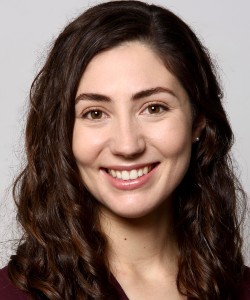Reflections on One Year of the Pandemic: A Medical Student Perspective
Cite as: Casey S. Reflections on one year of the pandemic: a medical student perspective. ASRA News. 2021;46. https://doi.org/10.52211/asra050121.036.
As a medical student on clinical rotations, COVID-19 has had a unique impact on my training. From three months off clinical duties to the inability to travel for electives and the shift to more virtual medicine, my rotations have changed drastically. My greatest takeaway from the pandemic, however, is not a loss of experience. Rather, my strongest realization was the incredible resilience and adaptability of the physicians, healthcare staff, and fellow students who I have had the privilege to work alongside.
The anesthesiologists I worked with were particularly anxious, knowing that as airway experts they would be asked to step up to the front line...
When the global pandemic was declared, I was a 3rd-year medical student completing an anesthesiology elective. March 11, 2020, is clear in my mind. Whenever there were short breaks from patient care my preceptor and I were glued to our phones. “Did you hear the NBA season is cancelled?” “They’re limiting gatherings to 250 people!” My phone lit up with hourly emails from the medical school administration about plans for our clinical rotations. The mood on the final day was both somber and surreal. The anesthesiologists I worked with were particularly anxious, knowing that as airway experts they would be asked to step up to the front line if our hospitals were overwhelmed as those in New York and Italy had been. The following Monday, we received the email from the program director stating that we would be pulled out of clinical rotations indefinitely.
Every medical student did something different with those three months out of the hospital. I moved into my parents’ house in the small mountain town of Canmore, Alberta. From there, I worked on a review article and studied for my eventual return to clinical rotations. Like many sheltering in place, I baked a lot of sourdough bread. I also trained for a 50-km trail run that I would eventually complete with friends in the summer. I still checked the news obsessively and followed the case numbers closely.
Medical students were cautiously allowed back into the hospitals in June. The major impact on my training at this time came from a lack of elective experiences and a transition to virtual medicine. Prior to the pandemic I had booked electives across the country. As non-essential travel was not recommended, all of these were cancelled. Instead, I completed electives at my home school. Clinic-based electives were often completely by phone, meaning I missed out on physical exams and the chance to build rapport with patients. On the other hand, many patients and physicians enjoyed the convenience of telephone appointments. My preceptors noted that although there were disadvantages to virtual medicine, it would likely be here to stay following the pandemic.
The first few months back in the hospital, COVID was on the differential diagnosis for every patient with shortness of breath, cough, or fever. However, relatively few patients were actually hospitalized with COVID as the first wave was relatively minor in Alberta, Canada, compared to other provinces and countries. That all changed in November, when a second wave caused a surge in infections, hospitalizations, and deaths. My experience of the second wave of COVID was also dramatically different from the first because instead of witnessing it from the safety of my mountain town, I saw it happen in real time in the intensive care unit (ICU).
One of the patients I remember most clearly from my ICU rotation was a father in his 40s. He was admitted to the ICU on nasal high-flow oxygen but quickly decompensated, requiring intubation. Watching from outside the glass windows of the isolation room as he facetimed his young children left a strong impact on me. With more and more patients admitted to ICUs in Edmonton, the plans developed at the start of the pandemic were put into action. Patients were double bunked, and the entire pediatric ICU was moved to another building to make room for patients with COVID. As a medical student, I was part of the team that had to adapt on a daily basis. The critical care physicians emphasized to me what a historic time I was training in.
In March 2021, I rotated on anesthesiology again. We wore gowns and N95 masks for intubation, because patients were not routinely tested for COVID preoperatively. With asymptomatic spread as well as higher transmissibility of variant strains, most anesthesiologists embraced this practice. I also was amazed by the innovative methods that each of the anesthesiologists had developed to mitigate the risks of intubation and extubation. Unlike the somber mood in the operating room I had experienced a year before, the staff in March 2021 were confident in the systems in place to keep them and their patients safe.
The pandemic is not over, and many questions remain about the coming months and years. As I write this, I am in the midst of interviews for residency positions via video call. Residency interviews are likely to remain remote in the future. Not only are remote interviews necessary to prevent COVID spread, but they also avoid thousands of medical students flying across the country, which comes at huge environmental impact not to mention the associated cost that could potentially disadvantage some students. On the other hand, similarly to telephone appointments with patients, I miss the human connection when interviewing virtually. The spring months will bring more vaccines and with them a slow return to normalcy, or at least a new normal. I hope that in the future we can face other challenges in the healthcare system with the same level of innovation and resilience that I saw over the past year.

Leave a commentOrder by
Newest on top Oldest on top